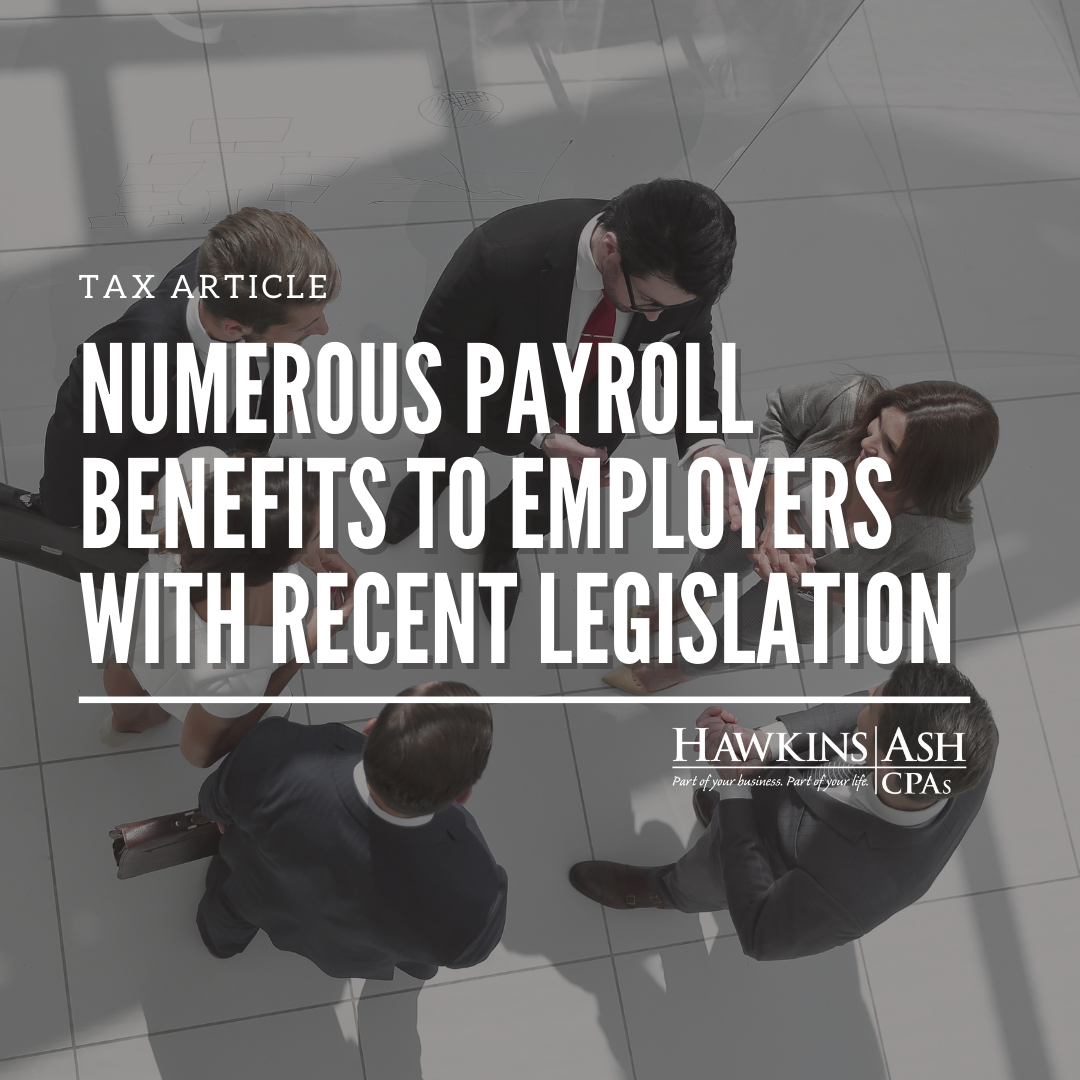There are several provisions from the Families First Coronavirus Response Act (FFCRA) and the Coronavirus Aid, Relief, and Economic Security Act (CARES Act) passed in March, with numerous payroll benefits to employers, that are extended in the December 2020 legislation.
Sick Leave and Family Leave Credits
The FFCRA required many employers with under 500 employees to provide mandatory sick and family leave to employees who were affected by COVID-19. This mandatory leave expires on December 31, 2020. The recent legislation EXTENDS the period of coverage through March 31, 2021, but the leave paid in the year 2021 is voluntary and not required to be paid. Therefore, if the employer chooses, the employer can provide sick leave and family leave in 2021 and obtain Sick Leave and Family Leave Credits for those payments.
This leave is not in addition to sick leave or family leave that was taken in 2020. The Sick Leave Credit is limited to 80 hours and the Family Leave Credit is limited to 10 weeks of paid leave. These limits remain. However, if an employee did not take family or sick leave or did not take all of the allotted hours or weeks, the remainder may be taken through March 31, 2021, if the criteria are met. The provisions of the credit, including when the credits can be taken and maximum considered wages are unchanged from the original legislation.
Sign Up to Receive Email Updates
Be sure you’re getting the latest insights as legislative developments occur. We’re here for you with tax insights and business resources.
Sign Up Now
Employee Retention Credit
The law extends the Employee Retention Credit (ERC). Beginning January 1, 2021, through June 30, 2021, there is an enhanced ERC. The original ERC was available for employers that had a reduction in revenue of 50 percent or more and continued to pay employees. The credit was 50 percent of paid wages. The enhanced credit provides for a credit of 70 percent of wages paid for employers that have a reduction of gross receipts over the prior year by 20 percent or more. The credit is also increased from a $10,000 annual limit on creditable wages to a limit of $10,000 of qualified wages per quarter. This is an increase of 400 percent of the credit.
In addition to the enhanced credit, Congress has retroactively clarified that the ERC is available to employers of less than 500 employees, even if the employer received a Payroll Protection Program (PPP) loan, so long as the ERC is not taken for the same wages as used for the PPP loan forgiveness. The legislation also removed the 30-day wage limitation, allowing employers to claim the credit for bonus pay to essential workers.
Enhanced Flexibility for Health and Dependent Care Accounts
The legislation allows employers to permit health and dependent care flexible spending arrangements to carryover unused benefits up to the full annual amount from the year 2020 to the year 2021 and from the year 2021 to the year 2022. It also allows the plans to permit a 12-month grace period for unused benefits or contributions for plan years ending in 2020 or 2021. Furthermore, it allows plans to extend the eligible age for dependent care benefits from age 12 to age 13. Lastly, it allows the plan to permit a prospective change in election amounts for health and dependent care accounts for plan years ending in 2021. Dependent Care and Health Care accounts typically require an irrevocable election to be made before the beginning of the tax year that can only be changed under certain circumstances. Congress is allowing employers to make some changes to their plans to allow for this flexibility.
Deferral of Employee Payroll Taxes
On August 8, 2020, the President signed an executive order allowing employees to defer a portion of their payroll taxes. The deferred taxes were to be paid in the first few months of 2021. Congress has extended the repayment of these taxes to December 31, 2021. This deferral is at the discretion of the employer. Many law firms have discouraged employers not to participate in this program due to the potential liability falling on the employer if the employee were to separate from service. We agree with these concerns and do not recommend that you offer this to your employees as there still is no clarification as to whom is responsible for the payment of these deferred payroll taxes.
As with these provisions and, the others in this end-of-the-year tax bill, please contact your Hawkins Ash advisor for answers to your specific questions about how these provisions are available to you and your company.





